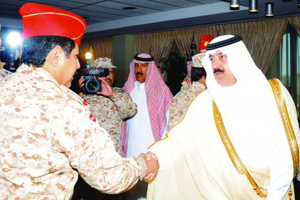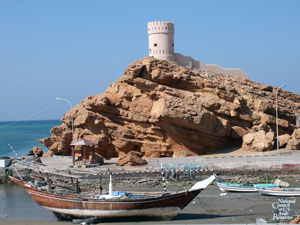Arabia, the Gulf, & the GCC Blog
The “Arabia, the Gulf, and the GCC” blog features insights and analysis from the National Council on U.S.-Arab Relations as well as information about the Council’s programs, projects, events, and activities. Founded in 1983, the National Council is a non-profit, non-governmental, educational organization dedicated to improving American awareness, knowledge, and understanding of the Arab region.
Arab-U.S. Relations: Views from the Region – 2014 Arab-US Policymakers Conference
The National Council on U.S.-Arab Relations’ 23rd Annual Arab U.S.-Policymakers Conference included a session on “Arab-U.S. Relations: Views
The Palestinian Future – 2014 Arab-US Policymakers Conference
The National Council on U.S.-Arab Relations’ 23rd Annual Arab U.S.-Policymakers Conference included a session on “The Palestinian Future”
Arab-US Defense Cooperation – 2014 Arab-US Policymakers Conference
The National Council on U.S.-Arab Relations’ 23rd Annual Arab U.S.-Policymakers Conference included a session on “Arab-U.S. Defense Cooperation”

HRH Saudi Arabian Prince Mit’eb bin Abdullah Comes to Washington
Download as PDF The Minister of the Saudi Arabian National Guard, HRH Prince Mit`eb bin Abdullah bin Abdul-Aziz
Arab-US Energy Cooperation – 2014 Arab-US Policymakers Conference
The National Council on U.S.-Arab Relations’ 23rd Annual Arab U.S.-Policymakers Conference included a session on “Arab-U.S. Energy Cooperation”

Council Chronicle Vol. 8, No. 1 (2014) Now Available
The National Council on U.S.-Arab Relations is pleased to provide the twenty-fourth edition of the Council Chronicle, the
Keynote Address by Ambassador Joseph W. Westphal – 2014 Arab-US Policymakers Conference
The National Council on U.S.-Arab Relations’ 23rd Annual Arab U.S.-Policymakers Conference included a keynote address by The Honorable
Iraq-U.S. Relations: A View From Baghdad – 2014 Arab-US Policymakers Conference
The National Council on U.S.-Arab Relations’ 23rd Annual Arab U.S.-Policymakers Conference included a presentation on “Iraq-U.S. Relations: A
The Collapse of Order in the Middle East – 2014 Arab-US Policymakers Conference
The National Council on U.S.-Arab Relations’ 23rd Annual Arab U.S.-Policymakers Conference included a presentation on “The Collapse of

Listen to the 2014 Arab-US Policymakers Conference
Complete audio recordings from the National Council on U.S.-Arab Relations’ 2014 Arab-U.S. Policymakers Conference, “Framing and Charting the
Gulf Cooperation Council: Role in Regional Dynamics – 2014 Arab-US Policymakers Conference
The National Council on U.S.-Arab Relations’ 23rd Annual Arab U.S.-Policymakers Conference included a session on “The Gulf Cooperation
Watch the 2014 Arab-US Policymakers Conference Online
Videos from the National Council on U.S.-Arab Relations’ 23rd Annual Arab-U.S. Policymakers Conference, held October 28-29, 2014 in
